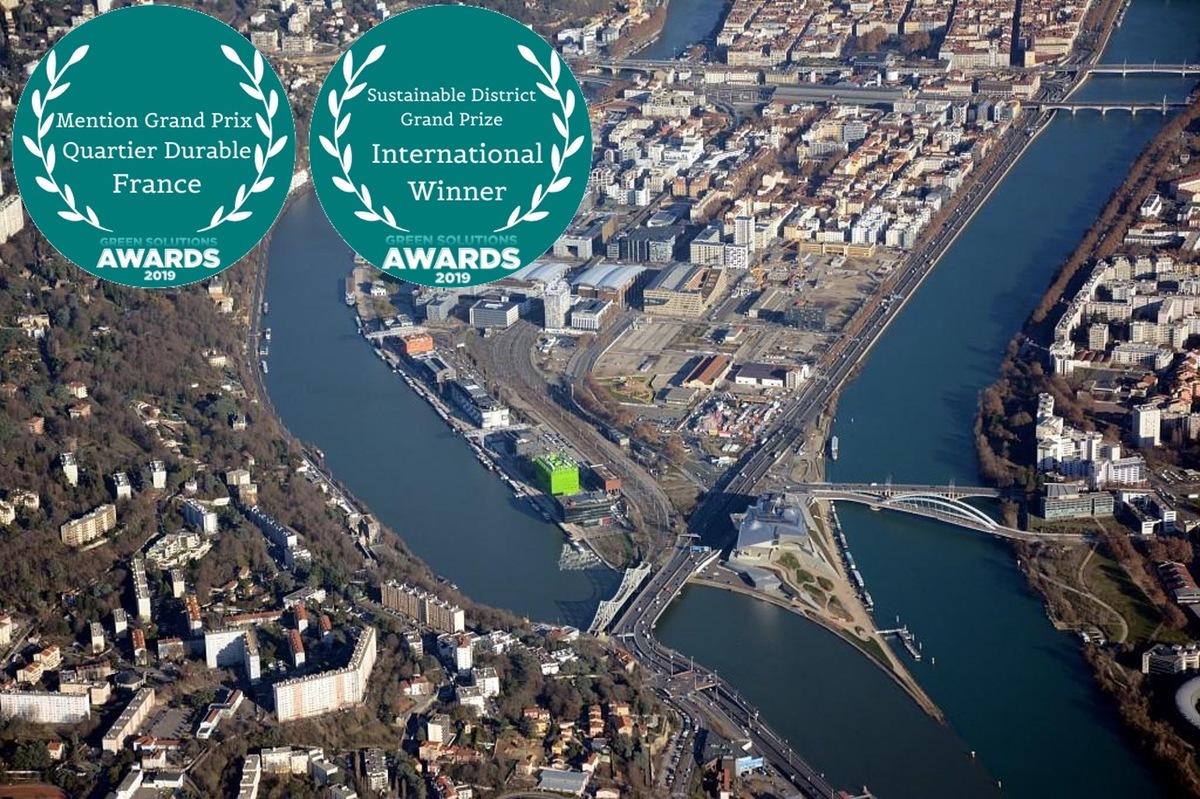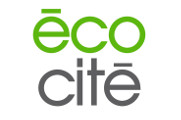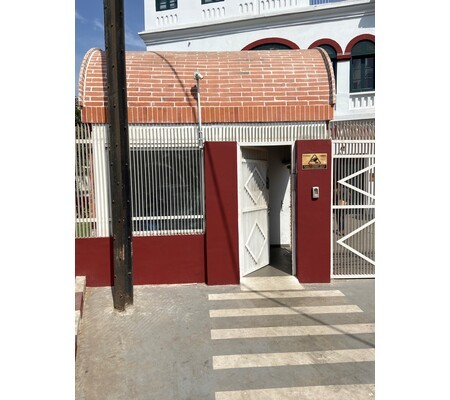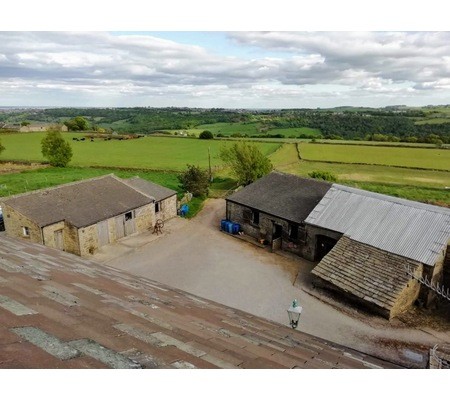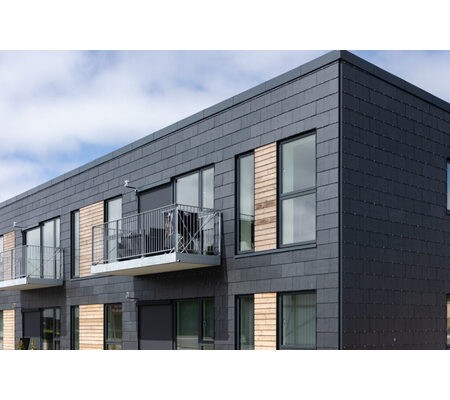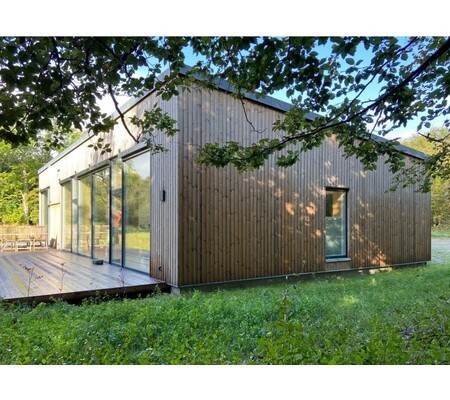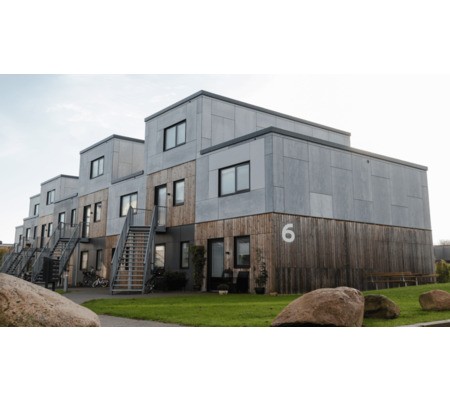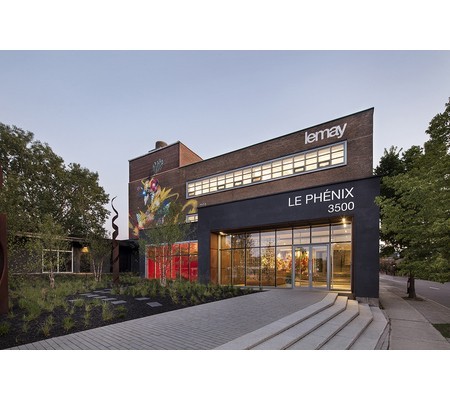Lyon-Confluence
Last modified by the author on 07/05/2020 - 10:28
- Address 1 - street : 69002 LYON, France
- Population : 17 000 hab
- Number of jobs : 25 000 emplois
- Starting year of the project : 2000
- Delivery year of the project : 2030
Certifications :
-
150 ha -
3 000 000 000 €
The Lyon-Confuence urban project has been developing since 2000 (until 2030) on a 150-hectare territory (half existing district, half new buildings and public spaces). In total, this represents the construction of an additional one million m2, without increasing the level of greenhouse gas emissions; thanks to:
- increasing local renewable energy production (photovoltaics & district heating)
- the construction of new high-performance energy-efficient buildings (including positive energy islands)
- the energy renovation of the existing district (private co-ownerships, social housing estates, offices, public facilities)
- sustainable mobility
- the development of a smart grid, via a platform for managing the district's energy data.
- Several international partnerships (Europe, Japan) have contributed to making the Lyon-Confluence district a testing ground for the sustainable development of the Lyon Metropolitan Area.
Results to date:
- completed construction of 500,000 m2 of new buildings with high environmental performance (passive and positive energy).
- confirmed energy renovation for 70,000 m2 of old buildings (18 buildings)
- total power of photovoltaic installations in the district greater than 2MW (30 installations providing the equivalent of the annual electricity consumption of 1000 households)
You can listen to this podcast (in French) for more information :
https://www.construction21.org/france/articles/fr/lyon-confluence-l-amenagement-dun-quartier-durable-de-grande-ampleur.html
And for the video just below, don't forget to put English subtitles.
Programme
- Others
Project progress
- Delivery phase
- Operational phase
Procedure type
- Urban développement permit
Prescriptions and zoning
- Particular conventions
Key points
- Governance
- Quality of life
- Economic development
- Mobility
- Smart city
- Resources
- Biodiversity
- Energy /Climate
Approaches used
- Ecodistrict national label
- Others
Certifications
- Ecocité
- Industrial demonstrator for the Sustainable City
- Autre
Data reliability
Self-declared
Type of territory
Located in the southern part of the peninsula, between the two rivers (Saône and Rhône), the Lyon-Confluence area used to be badly considered, as industrial and logistics activities were concentrated (such as harbour for commodities, gas power plant, jails…).
With the decline of these activities in the 1990s, 150 hectares of industrial wastelands remained, landlocked behind motorway and railways.
In 1998, Lyon Métropole started the urban renewal of the Lyon-Confluence area ; with the ambition of doubling the size of the Lyon city center. The objective of the Greater Lyon area is to be able to host 30,000 inhabitants and workers by 2025 (around 5,000 new inhabitants each year) and meet the objectives of the Climate Action plan.
Climate zone
[Cfb] Marine Mild Winter, warm summer, no dry season.
More info
http://www.lyon-confluence.fr/Public spaces area
350 000 m²
Office floor area
250 000 m²
Commercial floor area
150 000 m²
Public facilities floor area
32 000 m²
Housing floor area
550 000 m²
Refurbished floor area
100 000,00 ha
Number of residential units
7 000
Number of social housing units
1 700
Public spaces/inhabitant
Amount of the investment taken in charge by the local authorities
500 000 000 € HT
Project holder
Project management
- in 2003, meetings with the general public before the creation of the first phase of the urban project
- in 2008 and 2009, before the start of the second phase of the urban project, six thematic workshops + a path-exhibition « My City Tomorrow » to collect contributions.
- In spring 2016, public consultation on the redevelopment of the Lyon-Perrache train station area (with collected around 250 written opinions).
- Participatory monitoring committee, with stakeholders from the neighbourhood (several times a year), chaired by the vice president of Lyon Métropole in charge of participative democracy.
- Opening of a place of exhibition to host the general public, several days a week (Project Expo House « Maison de la Confluence ») Lien Vidéo (uniquement en français) https://vimeo.com/328130841
- Welcoming evenings for new residents (organized since 2010, at each commissioning of a new building block), to create bond between the newcomers and the existing inhabitants of the neighbourhood.
- Housing survey (interview of people living in the new dwellings, several years after delivery, to assess the relevance of the design, and to feed the specifications of the forthcoming tenders for real estate developers).
- Public consultation for the development of public spaces (throughout the design, and also satisfaction survey once they are delivered, for adjustements if necessary).
- A call for citizen-led projects (« Eurêka Club » was launched in 2018 [il y a une coquille dans la version française où c’est indiqué par erreur 2016… à corriger à l’occasion], in partnership with a dozen of public and private stakeholders involved in the Lyon-Confluence urban project. Thus, several citizen-led initatives have been selected. They are related to circular economy, social bond and well-being. Site internet de l’Eurêka Club (uniquement en français) : https://www.eurekaclub-confluence.com/
Project stakeholders
SPL Lyon Confluence
Developer
Urban developer in charge of the Lyon-Confluence urban project: - urban planning studies - land management - new construction - renovation of the existing district - public space works - consultation, information and communication. http://www.lyon-confluence.fr/
Etienne Vignali evignali (a) lyon-confluence.fr
TRIBU / Concevoir Durable
Assistance to the contracting authority
Assistant Project Manager of SPL Lyon Confluence, for its sustainable development strategy http://www.tribu-concevoirdurable.fr/
lyon (a) tribu-concevoirdurable.fr
Hespul
Assistance to the contracting authority
Assistant Project Manager at SPL Lyon Confluence, for the integration of renewable energies into the urban project, and the coordination of international projects.
info (a) hespul.org
http://www.hespul.org/
Enertech
Technical consultancy agency
Consultaning office specialising in the energy performance of buildings, responsible for the evaluation of several European projects at Confluence (new and renovated buildings)
contact (a) enertech.fr
https://www.enertech.fr/
Métropole de Lyon
Other
Local authority, and main shareholder of SPL Lyon Confluence
https://www.grandlyon.com/
European Commission
Other
Funders of several innovation projects for the sustainable development of the confluence district.
https://ec.europa.eu/programmes/horizon2020/en
Quality of life / density
The Lyon-Confluence urban project support a « neighbourhood life », with mix-use building blocks : housings, office spaces, shops, public facilities, cultural and leisure activities. The objective is that everyone can find a suitable place to live all along its life : student housing, social rental housing, social home ownership, intergenerational housing (or housing for elderly).
In total, for the whole Lyon-Confluence area, there will be 35 hectares of public spaces (23 hectares are already completed).
Lyon-Confluence has won the call « Industrial Demonstrator for the Sustainable City » (Ministry of Housing and Ministry of Sustainable Development) is currently developing and testing different urban innovations, within the framework of the « Eureka Confluence » partnership, which brings together different public and private stakeholders, involved in the neighbourhood
Eureka Confluence expliqué par les partenaires from Lyon Confluence on Vimeo.
Net density
Culture and heritage
The Lyon-Confluence urban project chose an ambitious architecture, combining well-known international architects and French architects (some of them from Lyon) ; and also the involvement with young architects.
While conducting the renewal of the neighbourhood, Lyon-Confluence pays attention to preserve its roots. From the river port to the former wholesale market, all the industrial activities that marked the history of Lyon-Confluence. An important work has been done to keep the memory of the existing neighbourhood.
Thus, the 10,000 m2 of « La Sucrière » (former warehouse for sugar storage) and the 3.8 hectares of the Port Rambaud have been retrofitted. Almost 20% of the former halls of the wholesale market will be kept : Flowers Hall (today a gym hall), Girard Hall (today incubator of digital startups), Porch building (to be renovated as a concert hall)…
By hosting the Catholic University of Lyon, as well as mixed-housing program (intergenerational housing complex) and offices, the conversion of the former prisons Saint Joseph (1827-1831) and Saint Paul (1860-1865) is a good example for the refurbishment of the existing buildings ; consistent with the requirements of the achievements of the new district. This is 40% of the existing building that has been preserved.
Many energy renovation projects have been realized in recent years in Lyon-Confluence. To this day, it is more than 70,000 m2 of energy renovation projects (works completed, in progress or confirmed) ; for which the reach of the low-energy threshold (French standard : « BBC renovation » for 'Bâtiment Basse Consommation Rénovation') combines improved thermal comfort of old buildings, preservation of heritage and integration of renewable energies.
The artistic and cultural activity is abundant ; with some key elements :
- The « Musée des Confluences » (open to the general public in 2014)
Dedicated to « Sciences and Societies », it questions the main scientific, ethical and social issues ; such as the origins of the universe, the living and the place of human, or even inventions, creations, technologies.
- « La Sucrière », that hosts since 2001 the Lyon Contemporary Art Biennale
Other events (such as exhibitions, arcitectic performance and installations) take also place there. « Le Sucre » ('The Sugar'), installed on its roof, is a place of multidisciplinary programming, where live music, concerts, parties, but also images, graphics or all other forms of contemporary creation and innovative culture.
- Hotel 71 « European & Metropolitan Creative Hub » (on the Rhône river side) gathers various stakeholders of the culture.
- « Marché gare » (Concert Hall), which regularly organizes concerts
- An annual festive event in Lyon-Confluence, to celebrate the « urban good » and the « living together » (concerts, dances, workshops, citizen cafés, activities for children…)
These meetings are an opportunity for the inhabitants of Lyon to (re)discover the neighbourhood differently, in a festive and friendly atmosphere.
Social diversity
In the Lyon-Confluence urban project, a particular attention is paid to social diversity.
The objective is to promote a neighbourhood life, with buildings mixing housings, offices, shops, administratives, cultural and leisure.
The social mix in Lyon-Confluence is a voluntarist choice, stated from the conception of the project ; with a willingness of the Lyon Métropole to have a global proportion of social housings (rental and in accession) of 23%. For each of the building blocks, the real estate developers have to comply with requirements on the proportion of social housings, intermediary housings and housings with no limitation on the price.
The goal is also that everyone can find a suitable place to live all along its life : student housing, social rental housing, social home ownership, intergenerational housing (or housing for elderly).
Social inclusion and safety
Real estate developers building in the Lyon-Confluence area must comply with requirements on sustainable development, which include specifications on the air quality inside the buildings.
In addition, several projects are currently implemented, to improve the provision of care in the neighbourhood (including actions in the field of preventive health) and the maintenance of elderly people at home : healthcare house, housings adapted to elderly people…
Local development
Today, around 900 businesses are installed in the Lyon-Confluence area : entrepreneurs, large companies, retailers, shops…).
The new buildings (offices and shops) of the first phase of the urban project have enabled to create 7,500 new permanent jobs. It is planned to have 2,500 additional jobs (once the second phase will be completed).
The Business Club of « Lyon-Confluence Presqu'île » was created in 2009. Its objective is to build and support a network of business connections, featuring business leaders from the neighbourhood.
Since 2019, an incubator of digital start-ups called « H7 » has opened in Lyon-Confluence http://www.h-7.eu/
Lyon-Confluence has won the call « Industrial Demonstrator for the Sustainable City » (Ministry of Housing and Ministry of Sustainable Development) is currently developing and testing different urban innovations, within the framework of the « Eureka Confluence » partnership, which brings together different public and private stakeholders, involved in the neighbourhood.
Eureka Confluence expliqué par les partenaires from Lyon Confluence on Vimeo.
Functional diversity
The Lyon-Confluence urban project aims to develop a downtown neighbourhood (with 17,000 inhabitants and 25,000 jobs) : housings, office spaces, shops, public facilities, higher education institutions, public spaces, cultural and leisure activities…
The new building blocks of the Lyon-Confluence area are mix-use (housings, offices, shops). The program has been designed to offer a wide range of offices, suitable for start-ups and large companies. All locations for economic activities have a public transport station less than 400 meters away.
% of public spaces
% of office area
% of commercial area
Circular economy
The guidelines for the real estate developers building in Lyon-Confluence features requirements on sustainable development ; in particular for the use of natural or recycled materials.
A new block currently under construction (B2 « Ydeal »), will integrate a building in rammed earth
Ydeal : le pisé à l'honneur from Lyon Confluence on Vimeo.
Circular economy was also a component of the call for citizen-led projects « Eurêka Club », launched with a dozen of public and private partners involved in the Lyon-Confluence urban project : Lien internet (mais uniquement en français) https://www.eurekaclub-confluence.com/#1
Mobility strategy
The Lyon-Confluence urban project aims to improve the quality of life in the city by :
- limiting the space taken by cars, and traffic jams
- mutualising the use of car parks between residents and employees working of the neighbourhood
Parc Marché Gare à La Confluence from Lyon Confluence on Vimeo.
- developping electric mobility infrastructures (40 electric charging stands, 16 electric car-sharing vehicles, 2 electric autonomous shuttles…)
- provision of a bike-sharing system (in 9 stations)
- supporting public spaces allowing safe and peaceful travel for bicycles and pedestrian
L'aménagement des Rives de Saône à La Confluence (2014-2016) from Lyon Confluence on Vimeo.
SOLUTIONS
- Soft transportation
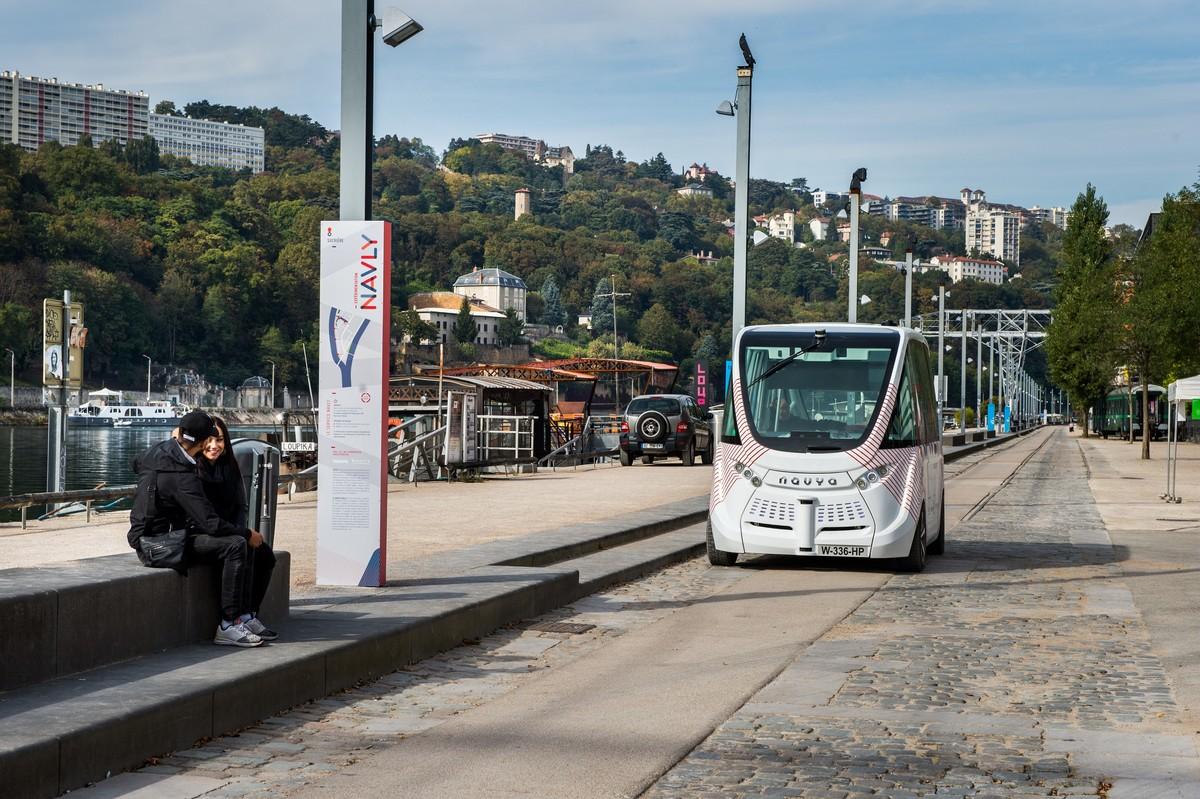
Electric autonomous shuttle « Navly » in Lyon-Confluence
Since September 2016, 2 autonomous electric shuttles « Navly » are in operation in the Lyon-Confluence area
- Soft transportation
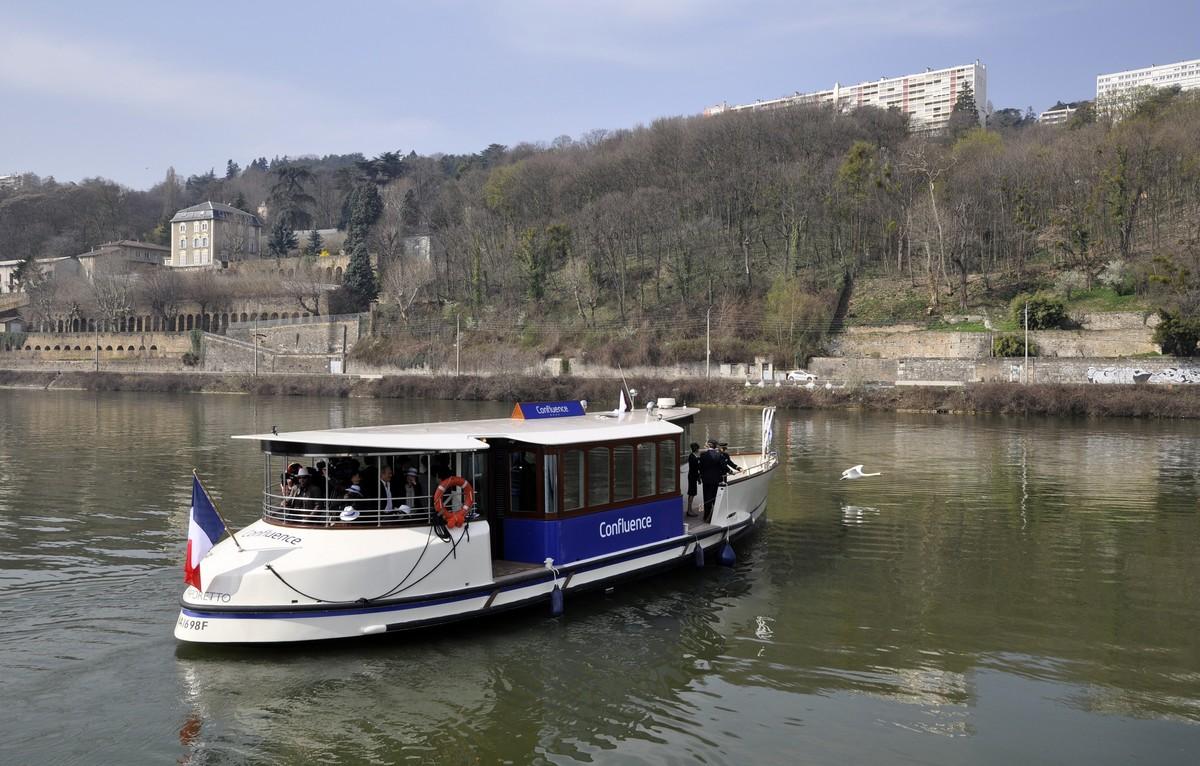
River Shuttle « Vaporetto » in Lyon-Confluence
River shuttle connecting the Northern part of Lyon, to the Lyon-Confluence area.
- Soft transportation
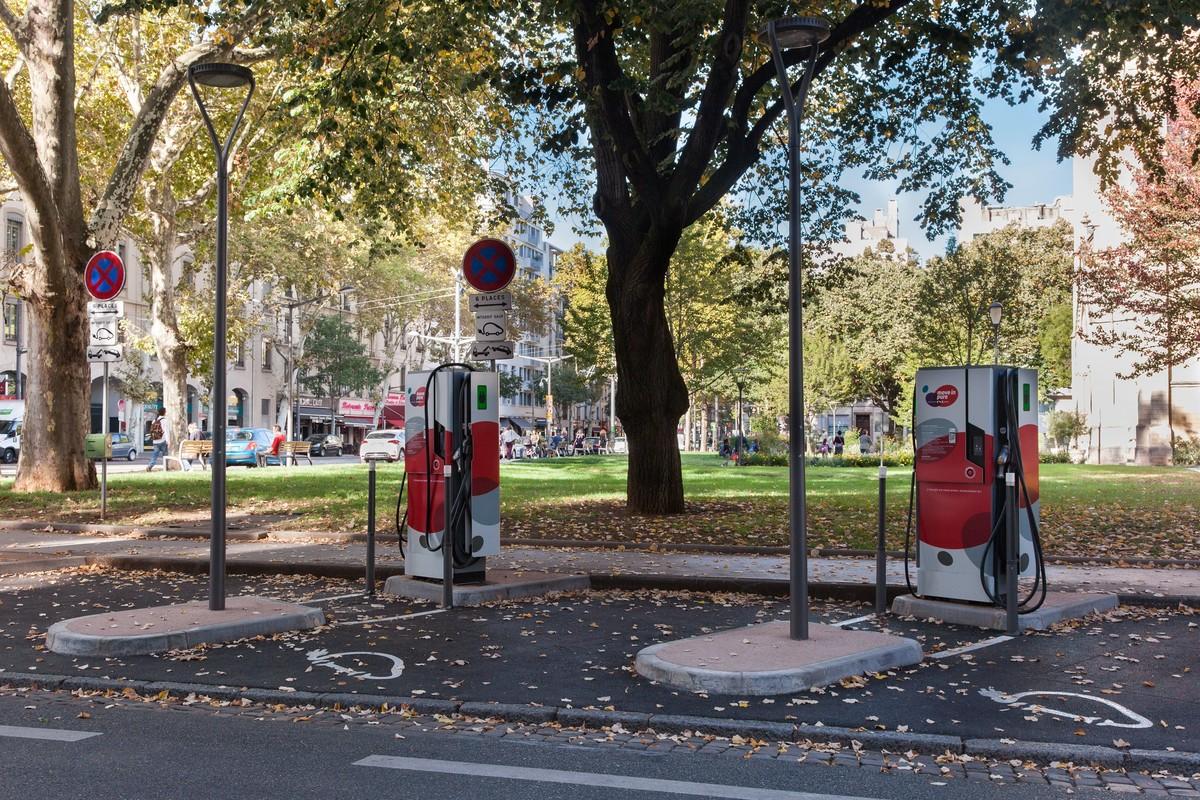
Electric charging stands CNR
An electric charging station of the CNR (Compagnie Nationale du Rhône) is commissionned in Lyon-Confluence, since the end of 2016. It is powered with electricity coming from 100% of renewable energy.
- Soft transportation
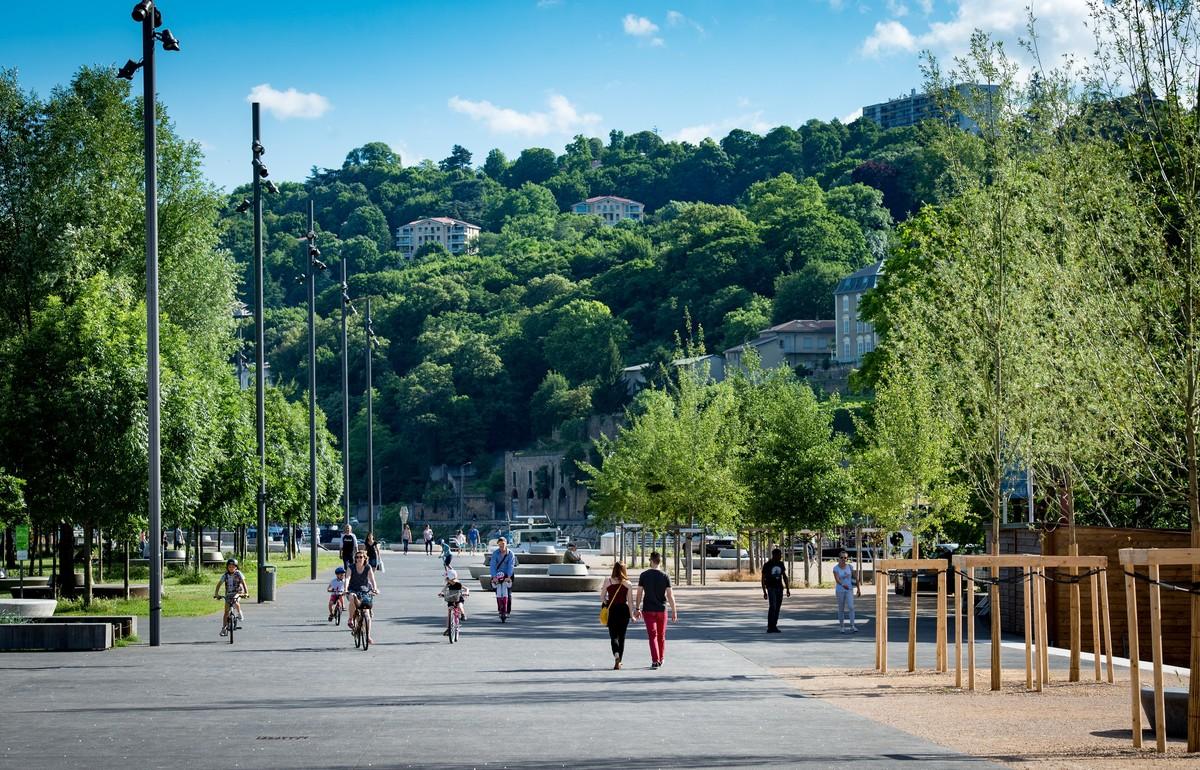
Public spaces supporting soft transportation in Lyon-Confluence
The public spaces of the Lyon-Confluence area support mobility for bikes and pedestrians.
- Soft transportation
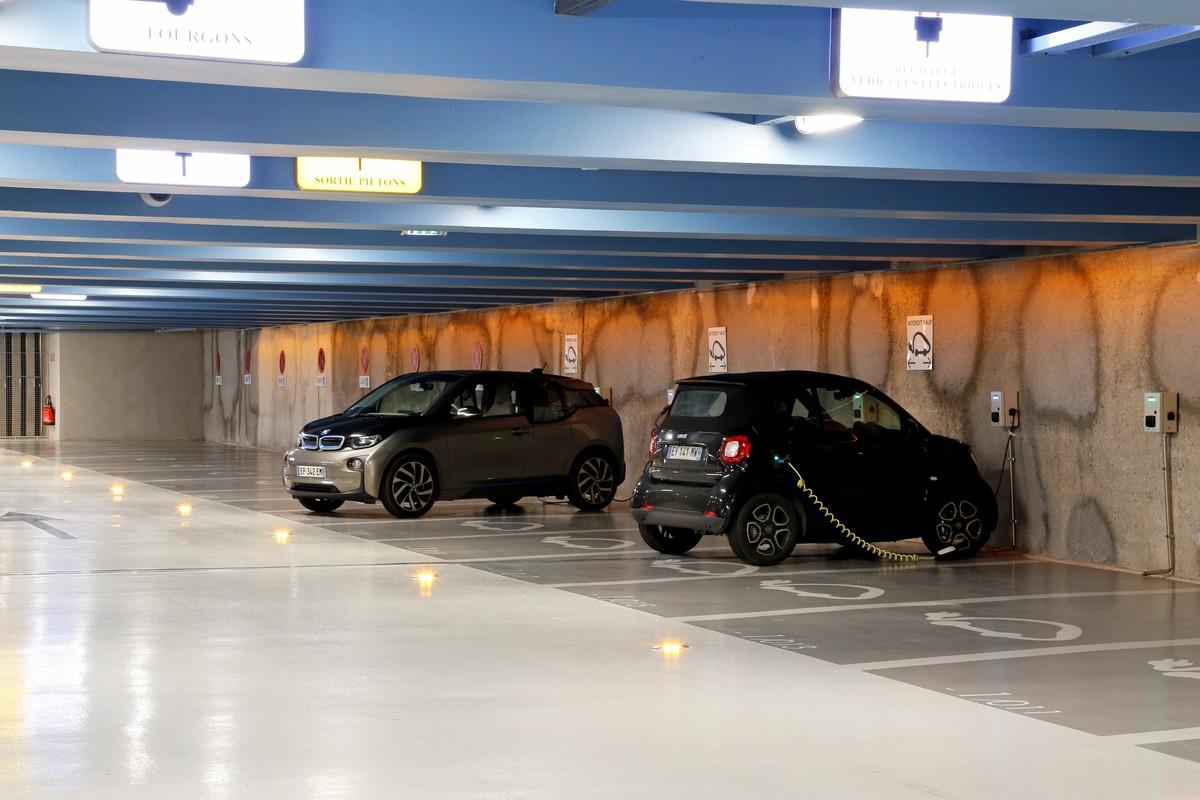
Electric charging stands Lyon Parc Auto
An underground car park of 840 places (« Parc Marché Gare »), built by the SPL Lyon Confluence, and operated by Lyon Parc Auto, is equipped with 20 electric charging stands.
Smart City strategy
The Lyon-Confluence urban project aims to take advantage of digital technologies to improve the quality of life in the neighbourhood.
High energy performance buildings (new or refurbished), electric mobility services, local renewable energy production… on these innovative projects of Lyon-Confluence, a regular feedback is set up. In order to improve the neighbourhood's environmental performance, a monitoring system for energy consumption and production is being rolled out, in partnership with the Lyon Métropole data platform.
Lyon, The Confluence, towards smart city (2017) from Lyon Confluence on Vimeo.
Several public and private stakeholders involved in the Lyon-Confluence urban project are also developping an indicator of well-being, which can help to improve the healthcare offer (preventive and curative) for residents and users of the neighbourhood.
SOLUTIONS
- Digital services
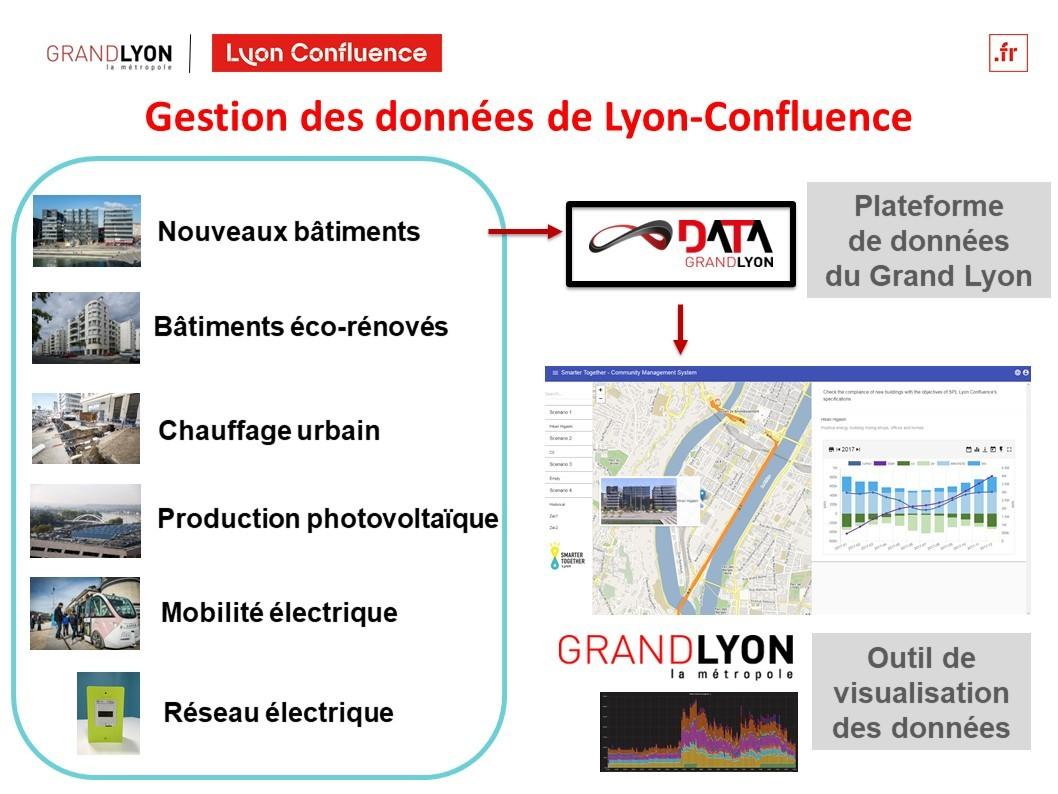
Monitoring and evaluation of energy performance data for the Lyon-Confluence district
Grâce à un projet soutenu par la Commission Européenne, et en partenariat avec la plateforme de données de la Métropole de Lyon, un outil de suivi-évaluation de la performance énergétique et environnementale du quartier est en cours de développement.
Via la collecte et l'analyse de données agrégées (pas de données personnelles), il vise à permettre un retour d'expérience régulier sur les projets mis en place à Lyon-Confluence : installations de productions d'énergie renouvelable, bâtiment neufs à haute performance, rénovation énergétique des bâtiments existants, services de mobilité électrique.
(crédits photo : SPL Lyon Confluence)
Water management
The Lyon-Confluence urban project features an appropriate management of water resources, by designing public spaces that favors the infiltration of rainwater.
Soil management
The development of the southern part of Lyon-Confluence (« Le Champ » -the 'field'-, an inhabited wooded park of 5 hectares) is an experiment for techniques of soil remediation, re-creation of fertile soils, and the development of circular economy (in particular for the recycling of concrete).
Le Champ - terre fertile d'expérimentations (2019) from Lyon Confluence on Vimeo.
Waste management
New construction projects in the Lyon-Confluence area include the implementation of shared gardens and composters.
Biodiversity and natural areas
Since the beginning of the Lyon-Confluence urban project, biodiversity has been an important part of the sustainable development strategy. There are long-lasting partnerships between the urban developper and associations for nature conservation ; especially LPO « Ligue de Protection des Oiseaux » (French Bird Protection League) and Arthropologia (insect protection).
This contributed to integrated into the public spaces, and in the projects of new buildings, features that favour biodiversity : generous public spaces, shelters for insects and birds, diversity of plants, heart of the buildings blocks with no underground construction (thus, thick soil favouring the growth of trees and other plants).
In total, for the whole Lyon-Confluence area, and by the end of the project, it is 35 hectares of public spaces that will be realised (23 hectares already completed).
La Confluence : ça sert à quoi la nature en ville? from Lyon Confluence on Vimeo.
A study realised in 2015 confirmed that, since the start of the urban project (in 2000) ; and despite the construction of 500,000 m2 of new buildings, the number of animal and plant species in the area had significantly increased. These are the results of all the actions done so far.
The second phase of the urban project plans to let more space for the development of the biodiversity ; especially thanks to the development of an inhabited wooded parc « Le Champ » ('The field').
Le Champ - terre fertile d'expérimentations (2019) from Lyon Confluence on Vimeo.
Climate adaptation, resources conservation, GHG emissions
Sustainable development had been an important feature of the Lyon-Confluence urban project, for more than 15 years.
The development of public spaces support soft mobility, green spaces and fight againts heat island effect.
For the new constructions of the neighbourhood, the guidelines real estate developers have to comply with feature strong requirements on :
- bioclimatic design : dwellings having windows on opposite façades (to favour natural ventilation and cooling), high-performance insulation, renewable energy production within building blocks, heart of the buildings blocks with no underground construction (thus, thick soil favouring the growth of trees and other plants ; which support freshness in the summer).
- the use of natural or recycled materials
For the energy renovation projects in the historic part of the Lyon-Confluence neighbourhood, the ai mis to reduce strongly the energy consumption (between 2 to 4 times less, depending on the buildings) but also to improve thermal comfort (especially in summer).
Energy sobriety
When designing new construction projects, a particular attention is paid to the size of energy supply infrastructures (electrical transformers, district heating substations, etc.) to avoid energy equipments over-sized, expensive and energy-hungry.
From the first phase of the urban project, Lyon-Confluence requires that real estate developers comply with energy-saving measure more demanding than current thermal regulations. New buildings built in the neighborhood are therefore very low energy consumers (some are even positive energy).
Energy sobriety concerns both new buildings and the refurbishment of the existing neighborhood (social housing blocks, privately-owned housings, office spaces, public facilities). Several ambitious energy renovation projects have been realized in recent years; representing a total of 18 buildings and 70,000 m2 (works completed, in progress, or confirmed).
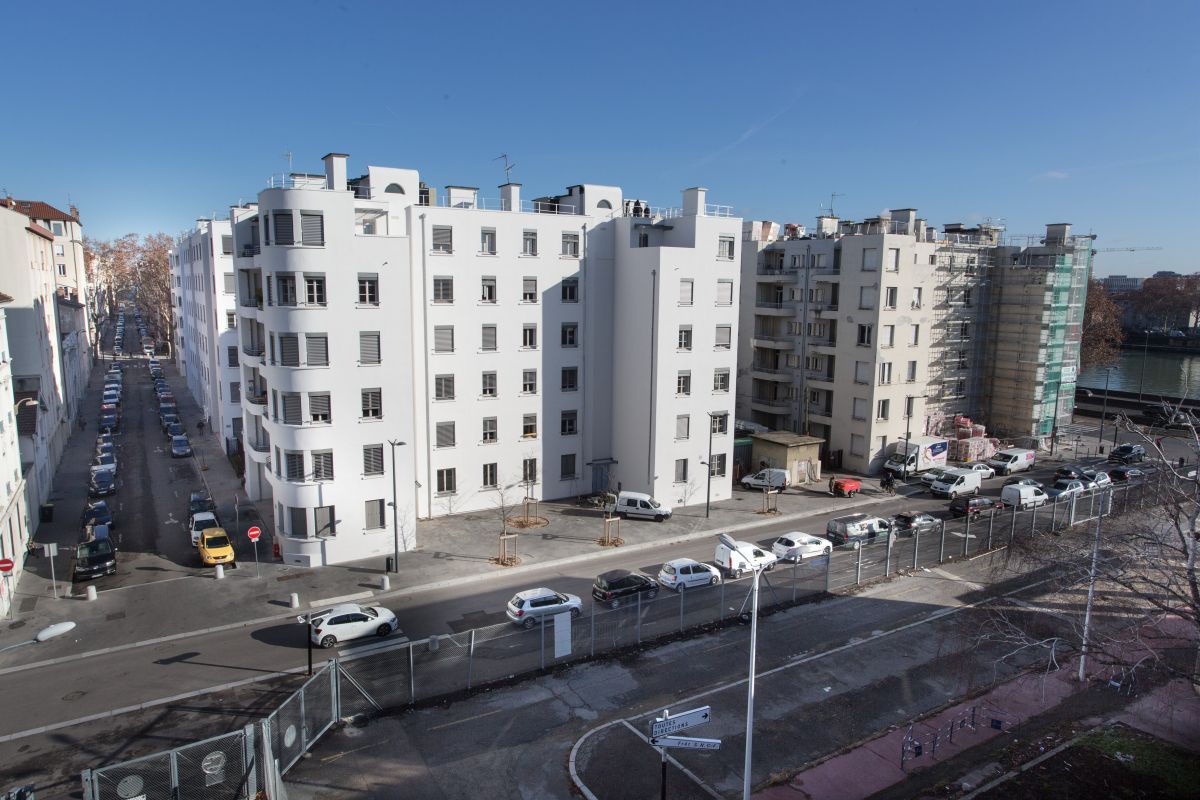
Energy mix
Since the first phase of the urban project, Lyon-Confluence has included in the specifications for real estate developers strong requirements for the production of renewable energies (biomass boilers, photovoltaic installations, cogeneration ...). Many buildings in the district (new or existing) are connected to the district heating network. Two-thirds of the energy mix of the district heating comes from renewable or recuperative energy (biomass boiler using waste from forest industries in the Region, and heat recovery from the waste incineration plant).
SOLUTIONS
- Renewable energies

Photovoltaic installation on a refurbished building (H7)
During the last 15 years, around thirty photovoltaic installations have been commissioned in the Lyon-Confluence district; on new, existing or refurbished buildings. This represents a total of more than 2 MW of installed capacity. 6 new photovoltaic installations will be installed between 2020 and 2022; which will bring the photovoltaic production capacity of the area to 3.5 MW.
- Renewable energies

District Heating system
Since 2016, a district heating network has been implemented in the Lyon-Confluence district, to supply in heating and domestic hot water new, existing, or refurbished buildings. Two-thirds of Lyon-Confluence's district heating energy mix comes from renewable or recuperative energies: heat recovery from the incineration plant, and biomass boiler (waste from forest industries in the region).
- 15,000 homes
- 16,000 m2 of offices
- 10,000 m2 of public facilities.
All new constructions of the 2nd phase of the urban project will also be connected (approximately 400 000 m2 of additional buildings).
Lien internet (mais uniquement en français) : https://chauffageurbain.centremetropole.grandlyon.com/un-reseau-durable
Buildings
Link to the project buildings the Construction21 database:
- Higashi: brand image and working comfort
- Minami: 32 contemporary homes designed for family life
- Nishi, villas suspended on an office building
Link to a project district in the Construction21 database:
Reasons for participating in the competition(s)
Quartier Lyon-Confluence :- projet urbain de grande ampleur intégrant depuis plus de 15 ans un fort volet développement durable, aussi bien pour les nouvelles constructions, que pour la rénovation du quartier existant : production d'énergie renouvelable locale, performance énergétique des bâtiments (neufs et existant), mobilité durable, biodiversité, qualité des espaces publics, logements bienveillants...
- quartier mixte (logements, activités, commerces, équipements publics) avec, à terme, 17 000 habitants et 25 000 emplois.
- parties prenantes de plusieurs partenariats nationaux et internationaux (Europe, Japon) pour le développement d'innovations avec des acteurs publics et privés.
Building candidate in the category

Sustainable City Grand Prize





